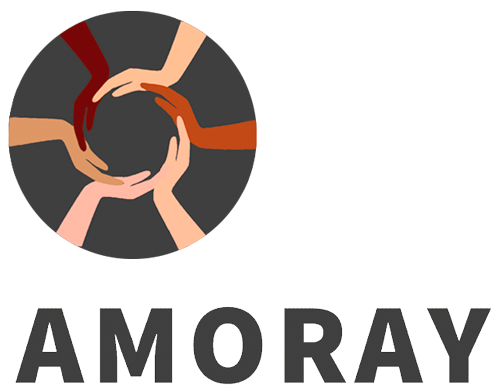The AMORAY eLearning course provides content related to the mental health assessment of refugees and asylum seekers. It is mainly addressed (but not limited to) youth workers and combines manual, learning assessment tools and pedagogical approach (these last two can be downloaded as pdf at the end of each lecture). It is structured in 5 Modules, namely:
- General knowledge about assessment of mental health needs
- Mental health prevention
- Risk assessment
- Trauma
- Self-care
An Evaluation Questionnaire is also proposed for youth workers to be filled in before and after reading and implementing the theoretical and practical part of the eLearning course. You can dowload here the Evaluation Questionnaire.
Moreover, there is the possibility to obtain a YOUTH PASS certificate which recognises learning outcomes from youth work and solidarity activities. As a Europe-wide recognition instrument for non-formal learning in the youth field, Youthpass strengthens the social recognition of youth work. You can find more infromation here.
If you are interested to know how to obtain a YOUTH PASS certificate by implementig the AMORAY methodology, please contact us though the Contact form here.
Course Features
- Lectures 44
- Quizzes 0
- Duration 10 weeks
- Skill level All levels
- Students 4
- Assessments Yes
-
MODULE 1: General knowledge about assessment of mental health needs
- Interviewing: Building Communication and Listening skills
- Warning Signs
- How to cope with distress
- Empathy as assessment tool for the mental health of the beneficiaries
- Assessments for Trauma and Mental Health in Refugees
- Culture and Mental Health
- Improving Mental Health Support for Refugee Communities – an Advocacy Approach
- AMAAN Information about mental health and ways to look after your wellbeing for asylum seeking and refugee women
- Refugee Experience: normal reaction to extraordinary circumstances
- Nostalgic disorientation within the context of refugee experience: impact on wellbeing
- References
-
MODULE 2: Mental health prevention
- Different types of prevention
- NUTS + ANTS
- Emotional Intelligence / Characteristics of Emotional Expressional
- Prevention and early intervention
- Measures to promote the mental health of refugees and migrants
- Prevalence of mental disorders in refugees and migrants
- Health needs of Asylum Seekers and Refugees
- A civilized society
- Mental Health prevention and sleep disturbances
- Mental Health prevention and sleep hygiene
- References & Further reading
-
MODULE 3: Risk assessment
-
MODULE 4: Trauma
- Understanding trauma in the context of the refugee experience
- Symptoms of post-traumatic stress and how they might manifest in behaviour
- Symptoms and diagnostic criteria of post-traumatic stress disorder, DSM-5 and ICD-10
- The TRΑUMA Grid & Adversity Activated Development (AAD)
- Intercultural aspects of trauma
- Reference & Further reading
-
MODULE 5: Self Care
- Professional Quality of Life: Compassion Satisfaction and Compassion Fatigue
- Resiliency in Healthcare – Taking good care of yourself so that you can take good care of others
- Cup of Calm: Take Your Sick Days. Here’s How
- Mental Health and Psychosocial Support for Volunteers and Stuff who work with Refugees, Asylum Seekers and Migrants in Europe
- Self-Care: 12 Ways to Take Better Care of Yourself
- Self-care and Well-being in Mental Health Professionals
- Caretaking with users
- The importance of boundaries
- The Hurry Sickness
- Neuroscience and Self-Care
- References & Further reading

